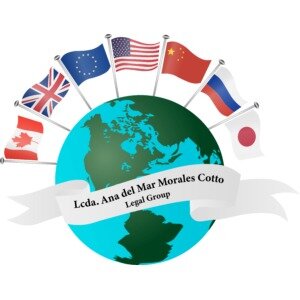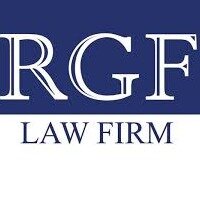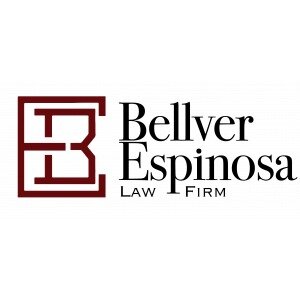Best Restructuring & Insolvency Lawyers in Puerto Rico
Share your needs with us, get contacted by law firms.
Free. Takes 2 min.
Or refine your search by selecting a city:
List of the best lawyers in Puerto Rico
About Restructuring & Insolvency Law in Puerto Rico
Restructuring & Insolvency law in Puerto Rico governs the processes and legal frameworks that help individuals, businesses, and organizations manage financial distress. This field of law involves a range of solutions, from informal negotiations with creditors to formal bankruptcy proceedings under federal or local law. The goal is either to help debtors reorganize their finances to keep operating or, when necessary, to liquidate assets in an orderly manner. Puerto Rico follows United States federal bankruptcy laws but also has unique local regulations and court procedures that apply to individuals, private entities, and government bodies facing insolvency.
Why You May Need a Lawyer
There are several situations where legal guidance is crucial in the area of restructuring and insolvency. Individuals may face overwhelming debts, wage garnishments, lawsuits from creditors, foreclosure, or utility shut offs. Businesses might encounter cash flow shortfalls, creditor lawsuits, threats of asset seizures, or difficulties paying employees. Municipalities and public entities can also encounter insolvency, as seen in high-profile government debt restructurings in Puerto Rico. In all these cases, the assistance of a qualified lawyer helps you understand your rights, evaluate your options, negotiate with creditors, and comply with complex filing and court requirements. An attorney ensures you navigate the process efficiently and receive the protections and relief provided by law.
Local Laws Overview
Puerto Rico adheres primarily to the United States Bankruptcy Code for formal bankruptcy filings, which includes Chapter 7 (liquidation), Chapter 11 (reorganization for businesses), and Chapter 13 (reorganization for individuals). However, there are notable local distinctions:
- Pursuant to the Bankruptcy Code, Puerto Rico is treated as a separate judicial district with its own bankruptcy court located in San Juan.
- PROMESA (Puerto Rico Oversight, Management, and Economic Stability Act) is a special federal law that governs restructuring processes for the Puerto Rican government and certain public corporations, including unique procedures not available elsewhere in the US.
- Puerto Rico also recognizes certain local debt collection, foreclosure, and creditor rights statutes that interact with bankruptcy, affecting how and when creditors can collect debts.
- Language differences and some local filing rules may impact procedural aspects of bankruptcy cases.
Knowing these distinctions is essential for anyone considering a debt restructuring or bankruptcy solution in Puerto Rico.
Frequently Asked Questions
What is the difference between restructuring and bankruptcy?
Restructuring often refers to informal agreements or court supervised reorganizations to modify debt terms while continuing business or personal operations. Bankruptcy is a formal legal process, under federal law, for discharging or reorganizing debts, sometimes resulting in partial or total liquidation of assets.
Can both individuals and businesses file for bankruptcy in Puerto Rico?
Yes. Individuals and businesses can file for bankruptcy protection under Chapters 7, 11, or 13 of the US Bankruptcy Code. Each chapter has specific eligibility requirements and outcomes.
What is PROMESA and how does it affect government debt?
PROMESA is a federal law enacted in 2016 to address Puerto Rico’s fiscal crisis, providing a legal framework for restructuring the debt of Puerto Rican government entities. It establishes an oversight board and unique court processes separate from standard bankruptcy.
Will I lose all my property if I file for bankruptcy?
Not necessarily. Both federal and local exemption laws may allow you to retain certain assets, such as your home, vehicle, or basic household goods, depending on your specific case and the type of bankruptcy you file.
How does bankruptcy affect my credit in Puerto Rico?
Like in the US mainland, bankruptcy will negatively affect your credit report for a number of years, usually 7 to 10 years, depending on the type. However, it also stops further legal collections and can help you rebuild your financial situation over time.
Can creditors continue to collect from me once I file?
Filing for bankruptcy generally triggers an automatic stay, which means most creditors must stop collection actions, lawsuits, foreclosures, and wage garnishments while your case is pending.
What alternatives are there to bankruptcy?
Alternatives include negotiating directly with creditors for lower payments, entering into debt management or consolidation programs, or seeking mediation services. However, these options may not provide the same protections as bankruptcy.
How long does the bankruptcy process take?
It varies. Chapter 7 cases can be completed in a few months, while Chapter 13 or Chapter 11 proceedings can last from three to five years or longer, due to the repayment plans involved.
Can I file for bankruptcy on my own?
While it is legally possible to file without a lawyer pro se, bankruptcy and restructuring cases are complex. Mistakes in paperwork or procedures can lead to unfavorable outcomes. Legal representation is highly recommended.
Do local laws in Puerto Rico offer special protections or requirements?
Yes. While most bankruptcy rules follow US federal law, Puerto Rico has local legal nuances regarding exemptions, certain creditor rights, and the unique PROMESA process for public debts. Consulting a local legal expert is important.
Additional Resources
If you are in Puerto Rico and in need of information or assistance with restructuring or insolvency, the following resources may be helpful:
- United States Bankruptcy Court for the District of Puerto Rico - Handles individual and business bankruptcy cases.
- Puerto Rico Department of Consumer Affairs (DACO) - Offers consumer protection and education regarding debt collection.
- Puerto Rico Office of the Commissioner of Financial Institutions - Regulates and supervises financial entities.
- Legal aid organizations - Such as Servicios Legales de Puerto Rico, that may provide free or low-cost legal help.
- Federal and local government websites for educational materials about bankruptcy and restructuring.
Next Steps
If you believe you need help with debt restructuring or insolvency, consider the following steps:
- Assess your financial situation and determine the urgency of your problem.
- Collect documentation regarding your debts, income, and assets.
- Consult with a qualified attorney who has experience in Puerto Rico restructuring and insolvency law.
- Ask about your options and which pathway is right for you, including both informal negotiations and formal bankruptcy.
- Follow your lawyer’s instructions regarding court filings, creditor communications, and steps to secure your property or business interests.
- Stay aware of all deadlines and ongoing obligations after filing.
Seeking early legal support can help ensure your interests are protected and can lead to a more favorable financial outcome.
Lawzana helps you find the best lawyers and law firms in Puerto Rico through a curated and pre-screened list of qualified legal professionals. Our platform offers rankings and detailed profiles of attorneys and law firms, allowing you to compare based on practice areas, including Restructuring & Insolvency, experience, and client feedback.
Each profile includes a description of the firm's areas of practice, client reviews, team members and partners, year of establishment, spoken languages, office locations, contact information, social media presence, and any published articles or resources. Most firms on our platform speak English and are experienced in both local and international legal matters.
Get a quote from top-rated law firms in Puerto Rico — quickly, securely, and without unnecessary hassle.
Disclaimer:
The information provided on this page is for general informational purposes only and does not constitute legal advice. While we strive to ensure the accuracy and relevance of the content, legal information may change over time, and interpretations of the law can vary. You should always consult with a qualified legal professional for advice specific to your situation.
We disclaim all liability for actions taken or not taken based on the content of this page. If you believe any information is incorrect or outdated, please contact us, and we will review and update it where appropriate.
Browse restructuring & insolvency law firms by city in Puerto Rico
Refine your search by selecting a city.













